Follow-up and Implementation of the Durban Declaration and Programme of Action (DDPA)
Item 9: Racism, Racial Discrimination, Xenophobia, and Related Forms of Intolerance
46th Session of the Human Rights Council
By Nora Futtner/GICJ
On Friday, March 19th, 2021 the Human Rights Council commenced the General Debate on Agenda Item 9, regarding racism, racial discrimination, xenophobia and related forms of intolerance and the follow-up to and implementation of the Durban Declaration and Programme of Action (DDPA). Due to time constraints, the session carried over to the following Monday, March 22nd.
The Durban Declaration and Programme of Action was adopted by consensus in 2001 at the World Conference Against Racism in Durban, South Africa. The Declaration calls upon states to combat racism, racial discrimination and xenophobia within their countries through a victim-centered approach and implementation of the recommendations included in the corresponding Programme of Action. The document is comprehensive and addresses numerous intersecting aspects of discrimination and their historical bases, with the recognition that a single individual may experience several compounding forms of discrimination. The DDPA specifically emphasizes the important role of education and engagement of young people in the fight against racism. It remains relevant to this day as a basis for conversations about ending discrimination globally.

The Intergovernmental Working Group focused on the effective implementation of the Durban Declaration and Programme of Action which was established by the Commission on Human Rights (presently the Human Rights Council) in 2002. On March 19th, 2021, Mr. Thabang Matjama, Permanent Representative of Lesotho, took the stage to present the most recent report of the Working Group. Mr. Matjama explained that the aims of the report were to discuss the situation of racial discrimination worldwide, review progress toward the International Decade, and propose activities for the 20th anniversary of the DDPA. He underlined that this anniversary represents an important milestone, and an opportunity for states and stakeholders to renew their commitment toward eradicating racism.
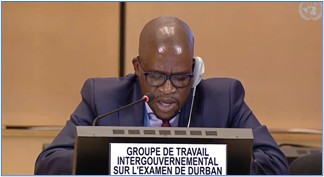 |
|
Source: UN Web TV Screen Capture |
The report identified that one major obstacle of progress is a lack of knowledge about the DDPA, and Mr. Matjama said that addressing this should be a central priority of the Council. The report additionally focused on the underlying structural inequalities that were exposed by the COVID-19 pandemic, including in access to healthcare and education, mortality rates and vulnerability to racist or discriminatory acts. Mr. Matjama relayed the Working Group’s request that States adopt comprehensive anti-discrimination legislation and establish or strengthen national mechanisms and institutions with integrated, intersectional approaches.
The presentation of the Working Group’s report was followed by an oral update by the High Commissioner for Human Rights, Ms. Michelle Bachelet. Ms. Bachelet noted that the report was made through listening to the experiences of people of African descent. She spoke on her experiences meeting with the families of individuals who had been killed by police officers, observing that many of the stories had similarities. Families often expressed that the government was not doing enough to acknowledge or counter systemic racism, and recounted struggles to obtain justice. The High Commissioner was worried the concerns held by the families of the victims are often dismissed, or not taken seriously. She underlined that impunity for these crimes does not occur in a vacuum and police violence cannot be targeted without tackling racism and discrimination in society as a whole. This must be done through broad and sustained actions that place people of African descent at the center.
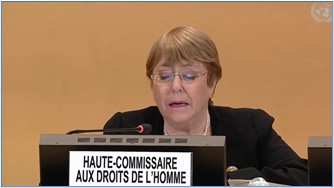 |
| UN Web TV Screen Capture: The High Commissioner delivers her oral update to the Council |
Statements from Member States
Delegates from 31 member states made statements during the debate. All re-emphasized their commitment to the full realization of the DDPA and fighting all forms of racism, xenophobia and related intolerance. Most also mentioned the impact of COVID-19 on exposing and worsening these issues and expressed the need to take this into account when building-back after the pandemic. Notable statements are summarized below.
Portugal, on behalf of N. Macedonia, Montenegro, Albania, Bosnia and Herzegovina, Ukraine, Republic of Moldova, Armenia, Georgia and the European Union called upon all States to ratify the International Convention on the Elimination of All Forms of Racial Discrimination, underlining that there is no place for complacency on this matter. Germany aligned itself with the statement of the Portuguese delegation, and mentioned that recent events in the country, where 9 individuals with immigrant backgrounds were shot by a right-wing extremist, have made combatting xenophobia a priority for the country.
Cameroon, on behalf of the African Group, stated that the 20th anniversary of the DDPA is an opportunity to mobilize political will, and that the UN should act to publish promotional materials to be available to the general public and carry out effective media campaigns. Malawi aligned itself with the statement of the African Group and spoke on the issue of vaccine access, which is proving to exacerbate discrimination in the realm of public health.
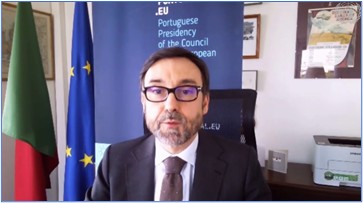 |
|
UN Web TV Screen Capture: The Representative from Portugal speaks on behalf of a group of countries and the EU. |
Pakistan, speaking on the prevalence of anti-Muslim sentiment and discrimination against Muslims globally, stated that Islam advocates for peaceful coexistence and prohibits discrimination. The delegate also condemned individuals and organizations who sought to incite violence by “denigrating religious personalities and symbols” including the prophet Mohammad. Further, Pakistan raised concerns over the veil bans that are appearing in national legislation around the world and said that they were a violation of international human rights law.
Azerbaijan spoke on behalf of the Non-Aligned Movement and condemned the glorification of the Nazi movement by some states who have erected monuments and memorials to Nazi collaborators. This statement was clearly directed at Armenia, who has recently come under criticism by the international community for erecting a monument to an Armenian nationalist and known Nazi collaborator. Armenia, in its statement, brought up racism and related intolerance directed against Armenians in the context of the Nagorno-Karabakh conflict and accused Azerbaijan of ethnically cleansing Armenians from their land. Further, Armenia stated that Azerbaijan is a xenophobic state.
Libya, on behalf of the Arab League, expressed shock over the treatment of migrants and urged all those involved to stick to the initial goals of the Council by rejecting politicization.
Brazil discussed the rise in discrimination in the digital economy, with the issue of algorithms and AI producing discriminatory outputs. The Secretary of Indigenous Health in Brazil shared good public health practices that have allowed Brazil to minimize the death rate among the indigenous population. These practices included creating rapid reaction teams, speaking with representatives from indigenous groups, and releasing 1.5 million reals to institute protection measures.
Indonesia condemned the rise in violence against people of Asian and Pacific Islander descent and the Philippines called for increased protection and security for Asian communities.
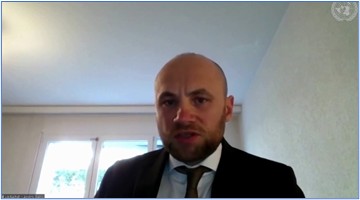 |
|
UN Web TV Screen Capture: The Ukrainian Representative asks the Vice President to cease playing the Russian Federation video statement. |
The pre-recorded video statement from the Russian Federation was interrupted numerous times by the delegate from Ukraine through points of order. Ukraine called upon all states and international organizations to not recognize an alteration to the status of Crimea (which is de jure part of Ukraine). The delegate stated that the individual who was trying to deliver a statement on behalf of the Russian state has been directly involved with the occupation of Crimea and that letting the person take the floor in front of the Council would be a violation of international law provisions governing the occupation of Crimea. The delegate asked the Vice President of the Council to uphold international law by preventing the statement of the Russian Federation from being shown.
The Vice President chose to proceed to play the video statement recorded by the Russian Federation. In the statement, the representative said that Ukraine is preventing freedom of expression through banning communicating and receiving education in one’s mother language and segregating communities based on linguistic differences. Russia stated that these actions were returning Europe back to the “dark epoch of Nazism.”
The statement of Bangladesh focused on the current situation of Rohingyas in Myanmar, who have endured decades of deliberate systemic and systematic discrimination which has led to the deprivation of their fundamental rights. Bangladesh raised alarm that Rohingyas are considered stateless in their own country and that social media platforms are continually used to propagate hatred against Rohingyas. Bangladesh called upon the international community to take actions to restore the fundamental fights of the Rohingya people.
Statements from Observers
In total, twenty-seven observer states made statements during the General Debate on Agenda Item 9. Common topics included the impact of COVID-19 on exacerbating discrimination (especially among migrants), access to the COVID-19 vaccine, hate-motivated violent acts around the world, and hate speech. Notable topics and recommendations are summarized below.
Israel urged the Council to adopt the Holocaust Remembrance Alliance’s working definitions on anti-Semitism, Holocaust Denial and anti-Gypsyism/anti-Roma Discrimination and to address hate speech in online platforms.
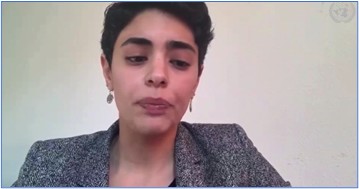 |
|
UN Web TV Screen Capture: The Representative from Palestine making a statement during the Session. |
The representative from Palestine said that since 1949, when Israel became a member of the United Nations, it has violated all UN resolutions. The statement alleged that Israel is not a democratic society and that they denied COVID-19 vaccines to around 5 million Palestinians. Finally, the representative said that the rights of Palestinian people should not be conditioned upon their religion or ethnicity and urged the Council to put an end to the systemic impunity enjoyed by Israel.
The representative of Iraq highlighted that the 20th anniversary of the DDPA is an important opportunity for all states to address their progress toward its goals and that Iraq is adopting all necessary procedures to fight hatred and intolerance. Iran called out the rise of xenophobia, especially against Muslims in European countries and condemned state policies that have encouraged anti-Muslim stigmatization, including travel bans and prohibiting the hijab.
Syria raised concern that COVID-19 has disproportionately affected minority communities, including Bedouin people, and strongly condemned Israel for its racist practices toward Palestinians.
The Democratic People’s Republic of Korea delegate emphasized his discontent regarding the discrimination against Koreans in Japan’s education system, alleging that Japanese authorities excluded Korean students from the student subsidies program.
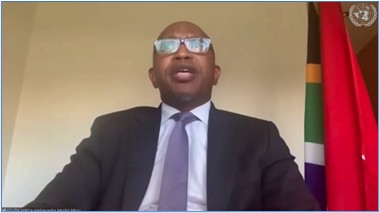 |
|
UN Web TV Screen Capture: South Africa delivers a statement to the Council. |
The delegation of South Africa, which aligned itself with the statements made by the African Group and the Non-Aligned Movement, said that it was critical to enhance the visibility of the DDPA in the coming months and years. Botswana welcomed the recommendations for the High Commissioner to prepare public materials to be distributed across different UN websites. Egypt targeted Finland, the United Kingdom and Belgium, saying that these were countries in which xenophobia most prevails, but that the media is not covering the crimes occurring in these countries.
Azerbaijan used its statement to report on Armenia’s discrimination against Azerbaijanis in Armenia, Armenia’s alleged occupation of Azeri land, and the targeting of civilian settlements during the conflict with the use of ballistic missiles and cluster munitions.
National Human Rights Institutions (NHRIs) and Non-Governmental Organizations (NGOs)
Fifty-nine representatives from national human rights institutions and non-governmental organizations from around the world made submitted video statements for participation in the discussion. Most organizations highlighted human rights issues occurring in their country of origin, with key topics including:
- Hate speech, mistreatment (including torture), and allegations of genocide committed by both Armenia and Azerbaijan during Nagorno-Karabakh Conflict.
- Discrimination relating to COVID-19, especially in relation to traditional burial practices and vaccine distribution.
- Migration injustice and discrimination against foreign workers and migrants.
- Discrimination against religious and ethnic groups around the world, including the Baha’i, Christians in India, Shia Muslims in Saudi Arabia, the Tamils in Sri Lanka, and the Tigray in Ethiopia.
- Impunity for police violence around the world, but especially in the United States.
- Hate speech online.
Further, several organizations called upon the OHCHR and UN Secretariat to properly promote the content of the DDPA and to publish the program of activities in all official languages for wide dissemination, with the purpose of increasing political will toward its implementation. The important role of the youth in fighting against racism, xenophobia and related intolerance was also underlined. These topics were also heavily focused on by delegates in the country statements.
The majority of organizations called for greater dissemination of the DDPA and the promotion of the document in the public eye. However, several Jewish advocacy organizations alleged that the Durban Declaration is an anti-Semitic document with aims to isolate Israel from the international stage. It is important to note that the DDPA has been criticized since its conception for its stance on Israel. In the past, several western countries, including the United States, France, Italy and Australia have boycotted the Durban Review conferences because of the perception that the DDPA has been used to promote anti-Semitism, including Holocaust denial.
Position of GICJ
We join the ranks of those who asked the Council to allocate more effort toward the promotion of the DDPA, especially online platforms. The DDPA remains largely unknown by the general public, despite it having existed for over two decades. It is likely that many young activists are unaware of the toolset that is provided by the DDPA because they have not been introduced to the document.Geneva International Centre for Justice (GICJ) stands in full support of the Durban Declaration and its Programme of Action, believing it to be a central pillar in the fight against racism, xenophobia and related intolerance. The document had provided the international community with clear metrics to strive towards, and helpful recommendations as to how to achieve them. Further, GICJ would like to thank the Working Group for its insightful report.
Geneva International Centre for Justice (GICJ) cares deeply about the human rights concerns expressed by both country delegations and organizations during this discussion. We recognize that these country-specific concerns about discriminatory practices, xenophobia and racism are not only a domestic issue, and deeply affect the international community as a whole. This is especially true considering the rise of discriminatory speech, including hate speech on the internet, which does not abide by country borders. For more information about the rise of hate speech, please refer to our recent report, here.
Geneva International Centre for Justice submitted three oral statements to this discussion, jointly delivered with either The International Organization for the Elimination of All Forms of Racial Discrimination (EAFORD), International-Lawyers.Org or Ma’onah Association. These statements addressed issues of Islamophobia, the impact of racism on basic human rights, and the implementation of the Durban declaration. Please find Mr. Mutua Kobia’s Statement here, Ms. Joy El Hajaly’s statement here, and Mr. Alejandro Fernàndez’ statement here.
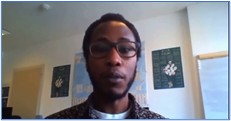 |
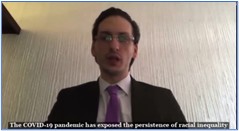 |
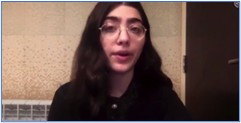 |
| Screen Capture of the statement of Mr. Kobia, of GICJ. | Screen Capture of the statement of Mr. Fernàndez, GICJ. | Screen Capture of the statement of Ms. Joy El Hajaly, GICJ. |
GICJ strongly believes that this year marks an opportunity for the international community to come together and reignite the right against racism and xenophobia. The events of the past year, including the COVID-19 pandemic and the rise of anti-Muslim and anti-Black speech and actions, have unveiled new dimensions of discrimination that require action on the grassroots and international levels. Due to the urgent need to cooperate in order to address these new forms of discrimination, we call upon all stakeholders, including relevant UN bodies, to place ending racism and xenophobia at the highest priority level.
.
Keywords: Racism, Discrimination, Xenophobia, Hate Speech, Human Rights Council, Durban Declaration and Programme of Action, Human Rights, COVID-19, Justice, Youth
.
-----------------------------------------------------------------------------------
See other GICJ Reports on the 46th session of the Human Rights Council
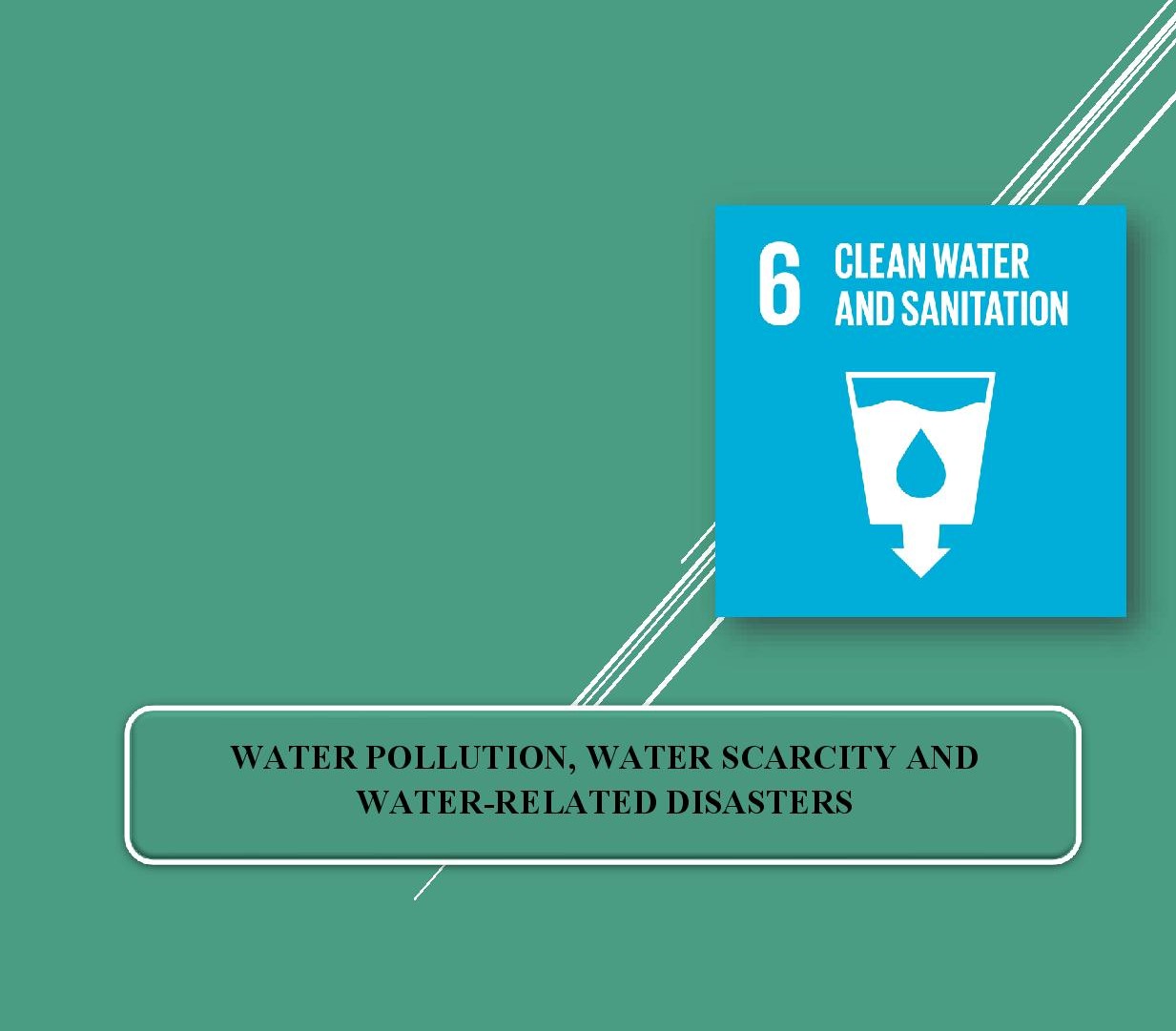 |
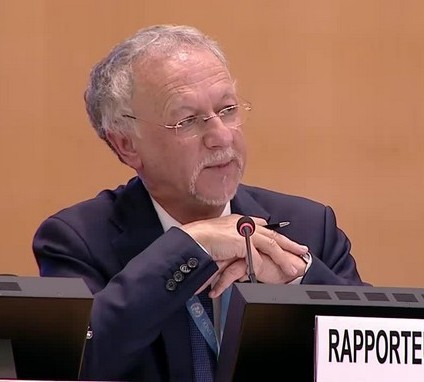 |
|
| Human Rights and the Global Water Crisis | Hate Speech, Social Media and Minorities | Discussion on Decade for People of African Descent |
.
| Transnational Corporations and Human Rights | Accountability in the Occupied Palestinian Territory | Human Rights Situation in Iran |
.
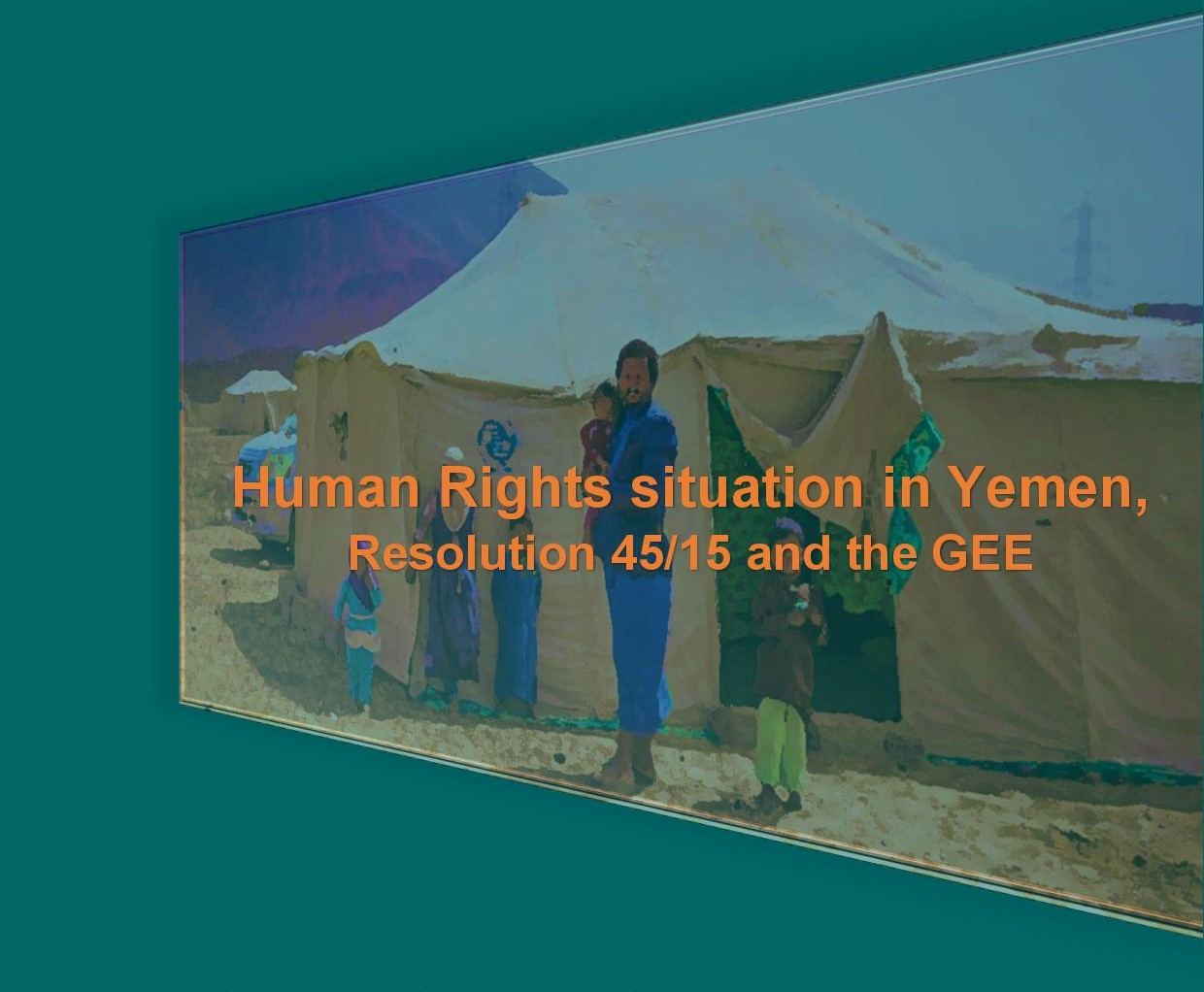 |
Human Rights Situation in Yemen |




